What exactly is a Xennial?
Rishi Sunak fits into a group which could be referred to as Xennials – halfway between Gen X and Millennial. But what is their world view? Hannah Fearn finds out

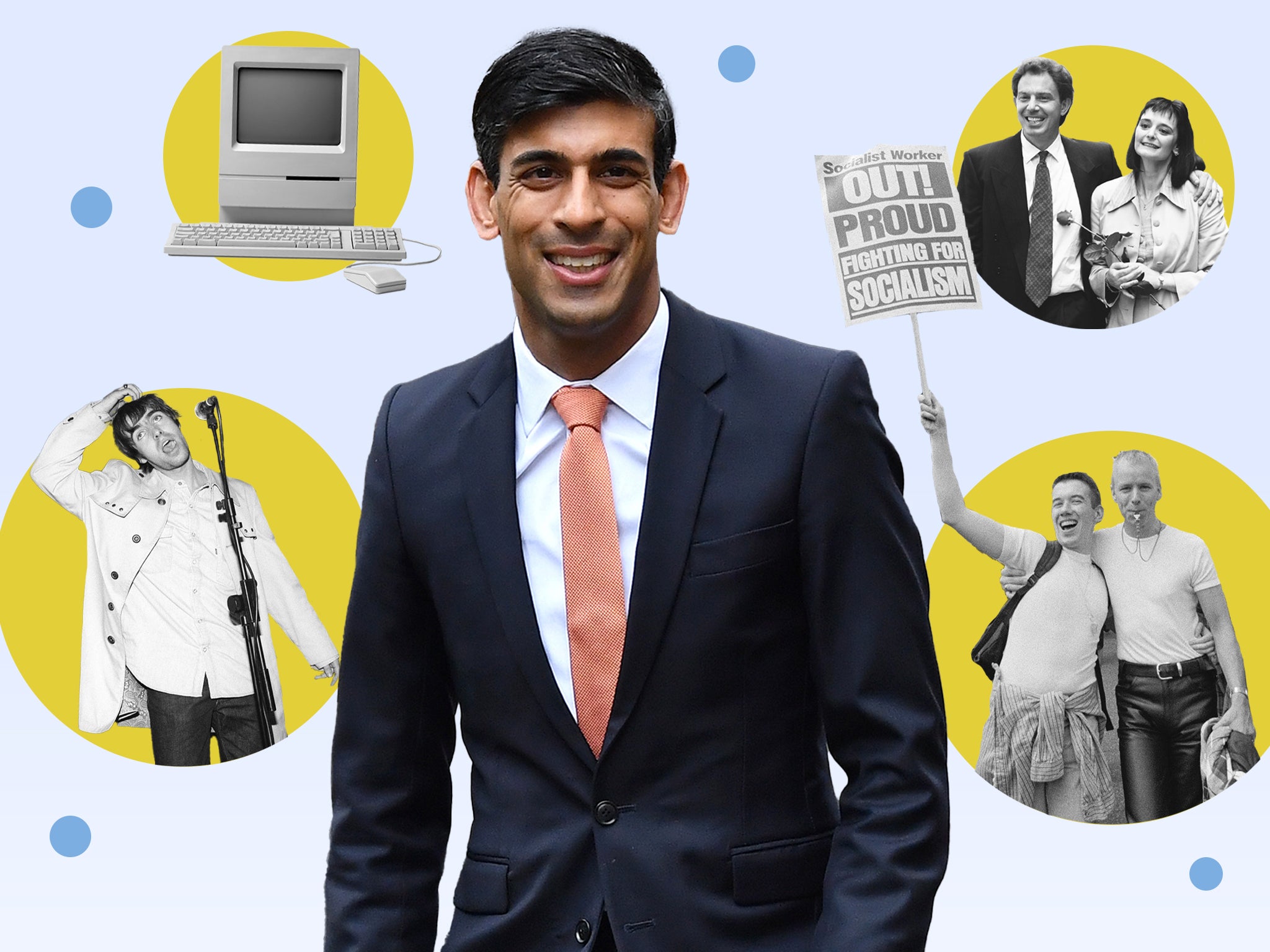
When Rishi Sunak rose in the commons to set out his budget for Covid recovery he was speaking to a weary workforce, a nation battered down emotionally and economically by almost two years of pandemic restrictions. His audience was tired, embittered, fed up. He was addressing a nation stuck in a groundhog day, living life in an endless loop often inhabiting little more than a handful of rooms and a local park. They needed to hear something uplifting. They needed a reason for hope.
The words the chancellor chose to deliver this message, and the fact that he delivered them with such conviction, were not coincidental. We were not only witnessing a carefully rehearsed piece of political theatre from a man gearing himself up to challenge for the top job (although it was that, too).
Instead, when he told the people that he would lead them into a “new age of optimism” he revealed something indelible about himself: his generation.
Sunak is 41, born in 1980. He is part of a microgeneration of people born on the cusp of two broader generational groupings – the Millennials and Generation X – known as Xennials. Social researchers across the west have demonstrated how this smaller group of generation-spanners, born between 1977 and 1983, share more characteristics with each other than they do with the larger generation groups that span them.
They grew up without technology in the home – most did not have regular internet access until they were somewhere around the age of 18 – and yet they were young enough to fit easily to lives and workplaces guided by it. In fact, as new entrants they often drove that workplace change. Social media did not arrive until they were in their mid to late twenties; they are embedded within it now but their young adult years were not curated by it. Economically, Xennials were the last of the lucky. They graduated with no or comparatively little student debt into a booming economy. Most had settled into initially stable jobs and careers before the 2008 financial crash and the allied housing bust. A proportion had already become homeowners before this moment too. In this particular regard, the so-called “geriatric Millennials” within the Xennial group – the oldest of the Millennial grouping which starts with those born in 1980 – share little of the significant early life experiences of mid-Millennials whose twenties were dogged by failed expectations. So little, that they are a different beast altogether.
Here in Britain, the Xennials shared something else: a formative experience that so characterises them that it is set to play a significant part in our national evolution in the next 10 years. They came of age in the late 1990s, an era of unbridled social and political optimism, and it has stayed with them.
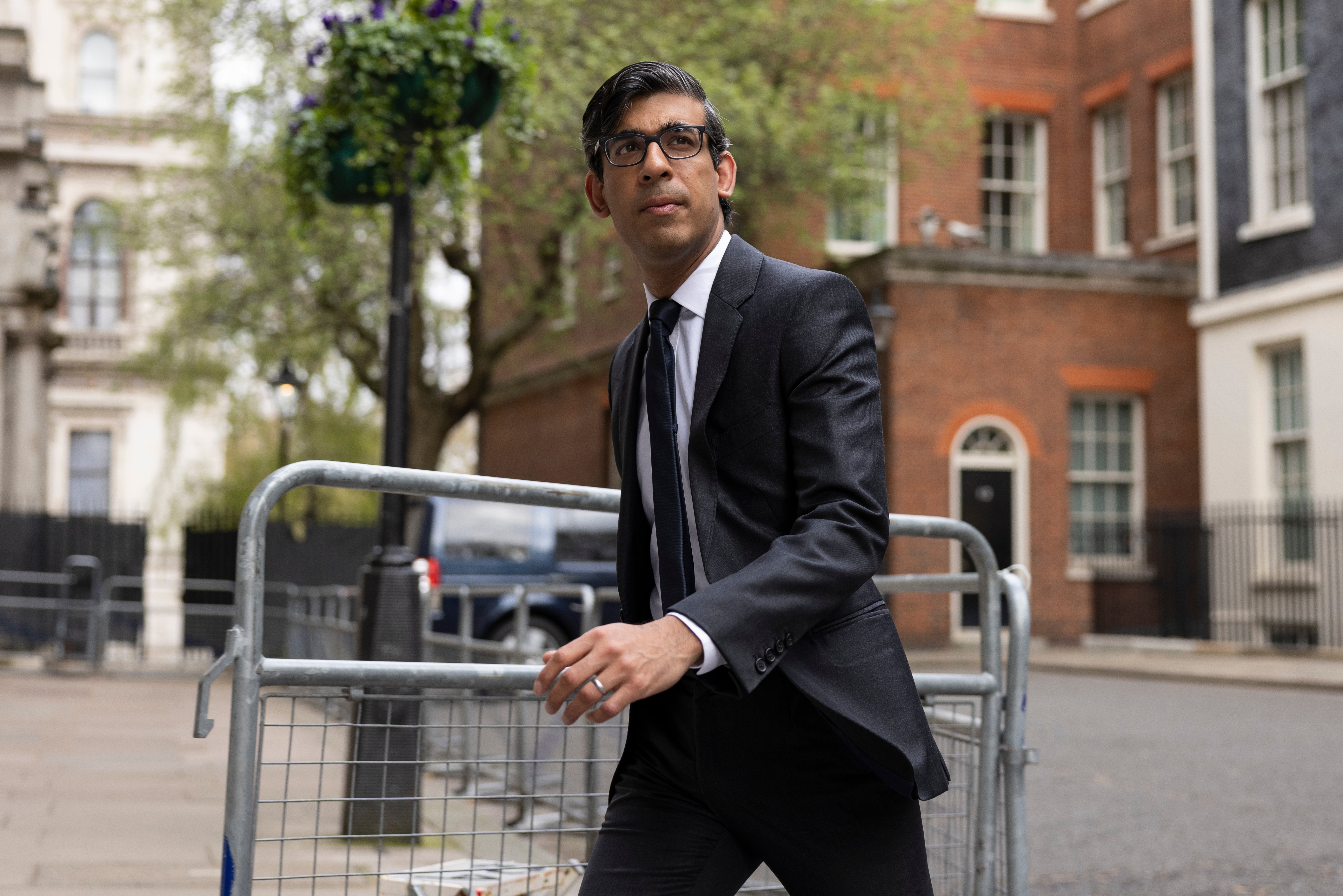
This national mood coincided too with economic stability, the rise of progressive politics and social progress. The Xennials spent their teens surrounded by an atmosphere of hope and celebration, with popular music that spoke of British lives as meaningful and significant. They grew up in an age of new starts, at the drawing to a close of old norms that no longer reflected the society they lived in. Women’s equality and LGBT+ rights were entering the mainstream as they grew to adulthood. Their formative ideas were made manifest in the moment that Labour took power in May 1997, yes – but not solely by that. The culture that surrounded and allowed that victory – the desire for change, a feeling of ownership of social progress, a sense of building a new kind of society – marked them, whatever their personal politics.
As consultant Sean O’Meara, a Xennial himself, puts it, the “overlooked quirk” of this microgeneration is that it had two unique and influential experiences during the formative years. “Firstly we can clearly remember a time when things in this country seemed great and positive. I can remember walking to school talking about how I wanted Tony Blair to win the general election and I remember feeling that it was a big moment, and he was a totally different type of politician to John Major. And secondly, our generation can remember a time pre-internet, but we are still young enough that we’ve ‘grown up’ with the internet. I think anyone who can remember the day they got the internet installed in their parent’s house has quite a rich perspective on the world.”
The 1990s saw the end of apartheid, which was a defining issue for loads of us, then Britpop and fun and national pride and the new government, and the shops were suddenly full of cool stuff
It matters nothing that Sunak shares little (almost none) of his political agenda with the New Labour promises from 1996 to 1998: he shares something more nebulous of its commitment to positivity, optimism and progress within him. At the dispatch box, he exposes himself as a Xennial time and again.
If he gets his shot at Number 10 this summer, it may prove a popular formula; the group he shares this social DNA with are now at the peak of their own careers, and are influencing Britain’s businesses and institutions.
The Xennials are now 40 or thereabouts, and many still think, thumping cliche though it is, that things can only get better. Thanks to them, we are attempting to enter this new age of positivity. I am one of them. In a matter of months I will mark my 40th birthday. And despite the endless reasons for anxiety and fear, I’m still optimistic about the future.
Everyone old enough remembers the spring and summer of 1997 as a long hot one, the balmy election night, windows open as the results rolled in – were you still up for Portillo? – and the waving of union flags (then unencumbered by negative sentiment) as Blair strolled up Downing Street to the cheers of gathered crowds.
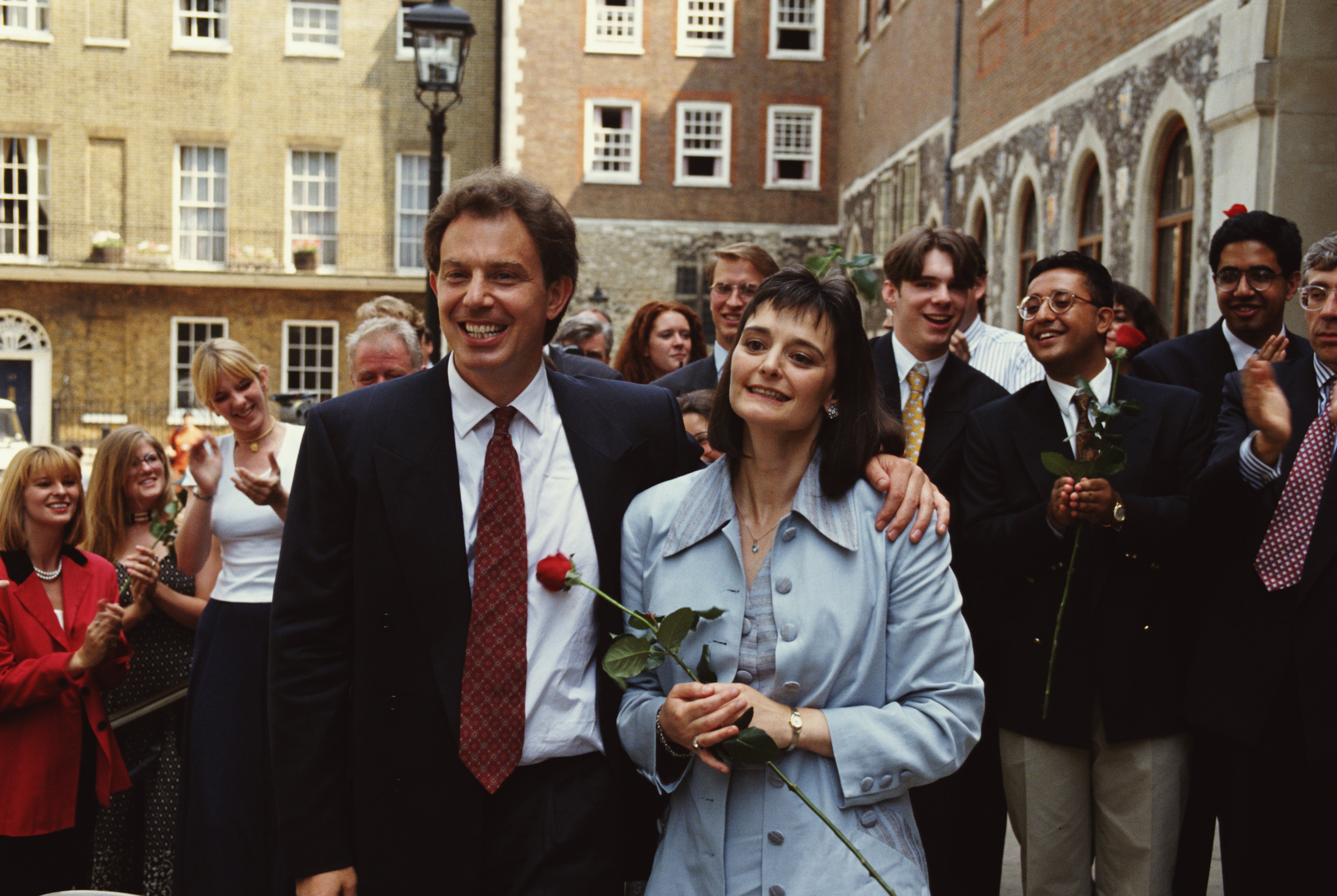
But for me, that’s not that year that sticks out. It’s the one before. In 1996 the weather was also remarkably clement and all that hoo-haa with the football was a lot of fun for 14-year-old me, sneaking bottles of Hooch into the back garden of my best friend’s house when her family invited friends over to watch the tournament. And one particular event: Tony Blair, who up to that point I’d heard talked a little about, came to my bog standard school to launch his policy on setting by subject in comprehensives on the hottest day of the year. My form tutor selected just-turned 14-year-old me to watch it, and many of my subsequent life choices followed (I’ve written about that experience in the past). There was a fizzing in the room, the sense of being – despite actually being unable to yet cast a vote – a small part of some significant shift. You could feel the sensation of dangling on a precipice, of history beginning to move to a different beat.
There is much critique of the lads and ladette culture of the time, of the accused vacuity of the YBAs and britpop music. In the age of anti-terror legislation, to say one feels proud and free to be British now comes loaded with a whole gamut of undesirable associations. But I feel no retrospective shame about that feeling of physical, intellectual and creative liberation that I as a young woman experienced in a world that suddenly offered not just permission but encouragement to cut my hair, wear trainers and DM boots, play the drums, get a degree and drink pints in the pub. Later generations misunderstand how rapid that shift in expectation upon women was shed. The same is true for lesbian, gay and bisexual people whose same-sex partnerships were finally, but in fact very suddenly, being recognised and respected.
Change was afoot in the streets, too, and quite literally on the high street. Polly Cziok, herself a member of Generation X but who remembers the era with equal fondness, says the sudden change in the availability of consumer goods was a genuine shock for people in their early and mid-adult lives.
“The 1990s saw the end of apartheid, which was a defining issue for loads of us, then Britpop and fun and national pride and the new government, and the shops were suddenly full of cool stuff after the 1980s which were really austere from a consumer perspective,” she explains. “Suddenly you could buy things we take for granted now. I remember in 1994 having to walk three miles as a student to an Italian deli to buy gnocchi. I ended up learning to make them from scratch. By 1997 you could buy them in every supermarket. It sounds mad now, but it was exciting.
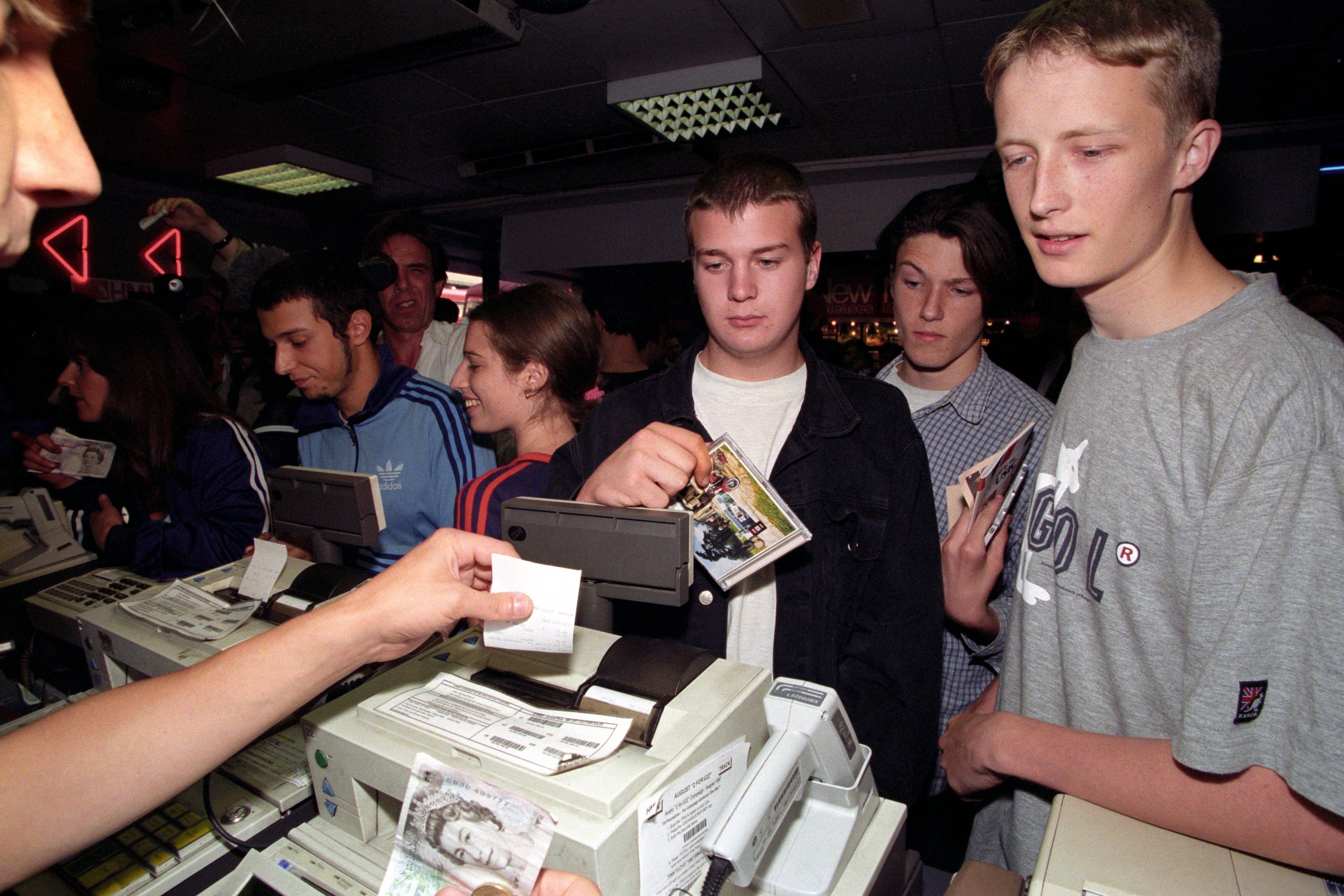
A consciousness of common purpose, a commitment to social improvement and perhaps at least equal to all else, of enjoyment of life, was palpable. Andrew Copson, born in 1980, agrees. “I remember feeling like it was the end of history and the world would just be a constant arc of progress forever.”
Clare Cole, also born in 1980, describes the sense of hope and possibility as “intoxicating”. “I find myself thinking back on that time a lot at the moment,” she admits. “I keep wondering right now whether this nostalgia I feel for that era is a sign I’m getting old… or a side effect of what feels like the absolute opposite of times right now.”
In recent history this was a very unique experience. I can only once remember feeling part of something similar, culturally, since, when I had the great fortune to be living in east London during the celebration of the London 2012 Olympic Games. In the same way, the sun shone and the city buzzed with pride and positivity. For a moment, being British was once again a suggestion of openness and welcome – and, yes, pride.
Every generation has a political moment around which their identity coalesces. For Generation Z, it is likely to be the Brexit referendum – a moment of discord followed by decades of consequences for their economic opportunities. My parents, mid-Baby Boomers, still discuss the arrival of the television in the home and two particular events being shared around the screen: the assassination of JFK and the first moon landing. For Xennials it is the 1997 election and the atmosphere that defined the years that preceded and followed it.
There is more in common across the young Generation X and old Millennials than there is between young and old Millennials
Bobby Duffy, professor of public policy at King’s College London and author of the book Generations: Does when you’re born shape who you are?, says there is clear evidence that events and experiences, particularly those in the political arena, have a lasting effect on attitudes and perspectives throughout life.
“What is very solid is the experiences in your formative years do have a lasting impression on people, to the extent that you grow up in those conditions, and that’s effectively the fundamental point of generational analysis,” he explains. “We do change as we age and lifecycle does have a powerful effect, but you still are left with that impression of when you grew up.”
Duffy cites US studies which demonstrate that the competence of a particular president during the young years of voters has an impact on voter choices throughout adult life, irrespective of the later abilities or ideas of future leaders in the same party. A useless Democrat in office during the formative late teen years, when voters come of age, means that cohort is statistically less likely to vote Democrat well into mid and late adult life. “There’s this pull effect or push effect from political experiences at those ages. That stays with us,” he says.
Duffy describes how there are three effects which explain all change in attitudes in society: cohort effects such as these, lifecycle effects as we are all moved by meeting important milestones in life such as home ownership or becoming a parent, and the period effect, which is the way we are pulled by forces in society that are beyond our immediate control such as the Covid-19 pandemic or the onward march of technological progress. Together these dictate the way we evolve as a society, but each is significant and enduring.

For the Xennials, Duffy agrees, the redolent summers of 1996-98 will have left their imprint. As the cohort is small when compared to the much larger groupings of Millennials or baby boomers it’s not possible to pull out hard data to prove that attitudes are pinned to that era, but there are small signs that suggest the trend. First, there is more in common across the young Generation X and old Millennials than there is between young and old Millennials . “There is a pretty distinctive break within Millennials between older and younger Millennials with all sorts of things,” Duffy observes. “Grouping with Generation X makes a lot of sense when you’re looking at some things, like technology specifically.” Their experiences are more akin to one another than to other members of their supposed cohort.
What is measurable is the positivity of the Millennials as a group, which obviously includes the oldest so-called geriatric Millennials and therefore has an impact on Xennial attitudes too.
In advice for businesses on understanding the new Xennial leaders emerging in the late 2010s, Kim Mackenzie, principal at Ripley Strategy, pointed out that this group has “the idealism of Millennials but the realism and ‘get stuff done’ attitude of Gen Xers. When they say something matters to them they follow through and deliver.” There’s another phrase for this, I’d suggest: positive pragmatism; qualities which have rather gone out of fashion in modern politics, but which drove the cultural shift under New Labour in the UK.
Duffy shows that academic studies find similar in terms of positivity, across the wider Millennial group. “In the late 1990s in the US and early 2000s in the UK people were still much more likely to say that the future was going to be better today than it was for their parents. When you get to any time past the housing boom and bust it’s reversed,” Duffy explains. But, interestingly, that trend is much more marked among older Generation X and Boomers. So those who were already in their mid-twenties or older in the late 1990s are more likely to feel pessimistic about their children’s own futures than those children do about their own lives. Millennials (including geriatric Millennials ) – and I’d contend, though we don’t have the data for this – are more economically optimistic even though they materially have less than their elders. It’s not just the optimism of youth, it’s also the legacy of their optimistic youth.
Something different but significant is also notable about Millennials as a wider grouping, which marks them out from Xennials. As Duffy describes: “In the UK, what did happen was that Millennials had a lower level of trust in other people until pretty recently. That happened year after year for quite a period time. As they’ve got older they’ve come more into line [with average] attitudes.” What explains that? “Effectively they were screwed over and there was a big disconnect between what they were promised and how it ended up.”
They, I think, do assume that the world will right itself, climate change will be resolved and things will only get better – a new dawn
All the obvious factors are there: the cost of education, the job market, their chances of owning a home. But for Xennials this isn’t the case. So they take with them the optimism, but move through the world without that huge baggage of personal disappointment.
That’s not to say the disconnect between where the country was, socially, when they were growing up and where it is now isn’t causing disappointment now. In fact, when I asked people on social media for their memories of this era, the 9/11 terror attacks and the US-UK led overseas incursions that followed are time and again labelled as a turning point for those feelings of positivity and hope. Nevertheless, as Duffy reminds us, these moments are not undone by what follows. “That [period] continues to shape us,” he confirms.
Our new optimists are now aged somewhere between 38 and 44. They are parents and, at work, they are now decision makers. So what does this mean for the impact of the micro-generation on the development of our society now?
Importantly, part of the shared experience of the late 1990s was the march of progressive liberalism, particularly around social mores. Some in hindsight may feel they mistook their teenage hedonism for activism, and there may be some truth in that. Yet huge change did happen: LGBT+ rights, women’s rights, diverse communities and the need to build open and inclusive public institutions now all seem obvious tenets of a good society now. Even the Conservative Party now accepts these as the basis of fairness, even if many disagree from that point forward on its route to achieve that. Those values were solidified in that era, a clear demarcation from the homophobia and “back to basics” family values of the late 1980s and early 1990s.
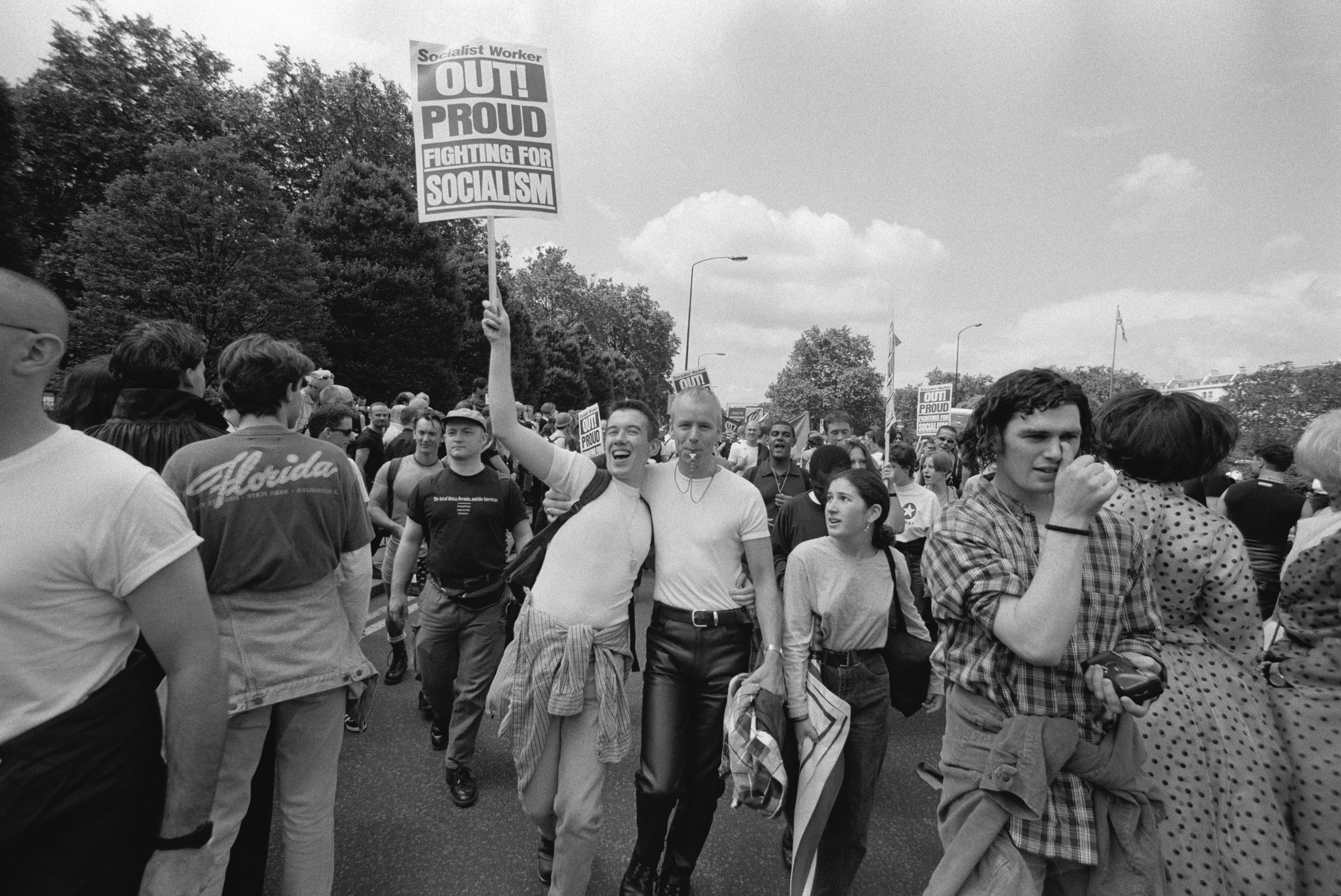
For Ed Dorrell, a director of Public First and among the oldest Xennials, that is part of the “collective experience” of that era. “I think there is a sense of that sort of progressive modernism being the natural order of things, and everything that’s happened since including austerity Brexit and now Boris and Covid is a huge disappointment but it does strike us as something that can be righted,” he says. “They, I think, do assume that the world will right itself, climate change will be resolved and things will only get better – a new dawn.”
Perhaps it feels like a naive perspective for this small group of the no-longer-young to hold on to, particularly given the turbulent two decades we’ve all lived through since – and, of course, the last two year especially.
Yet there are reasons to be convinced, or carried along. Despite the return of a dominant Conservative government, the old Conservative culture has not come along with it. “I don’t think the Eighties ‘loadsamoney’ culture is that strong anymore. Even in commercial businesses a fair few people of my generation carry the idea of being seen to be doing the right thing; there’s a progressive morality to what they’re about,” he says. “We’re the grown ups now, we have to fix things. I guess the generation 15 years earlier – not wanting to stereotype too much – would have thought let’s just make lots of money, [but] now there’s a sense of social good about us, which may be informed by ‘97.”
Is Sunak likely to take on this mantle politically? Dorrell doubts that however influenced he was by those years, the pitch will play well across a wider demographic. Now voters look for authenticity, which is not his strength – and wasn’t for the politicians of the late Nineties either. “So much of him reminds me of Blair. His politics are much to the right of Tony Blair and they wouldn’t agree, but the way he presents himself, the politician that he is, the way he talks, the way he interacts with people,” Dorrell says. “He’s saying, ‘I’m the young man, and we will enter this journey towards the promised land together’.” The problem is, today’s electorate may no longer buy into that ideal. The majority of it has not shared the experiences that lead him to believe it’s all possible; the rhetoric doesn’t chime with them like it did with an upbeat public in a booming economy 25 years ago. But despite the experience of the intervening decades, and even in acknowledging how much has changed, Xennials consistently report holding on to the spirit of their defining years. Graeme Patfield, a Xennial who is now a company director, tells me 11 September 2001 was a turning point. “I think that’s when the optimism was beaten out of us,” he acknowledges, “but a spark was still there. Certainly in my own life I’ve felt it doesn’t matter if you get everything right. That if you try the best you can, the best you can is good enough.”

Patfield is also interested in the cyclical nature of these optimism bubbles. He uses the popularity and creativity of Britpop, the soundtrack to this phenomenon, as an example: “That in itself is a rebirth of of the Sixties music our parents listened to. My kids got into Britpop through hearing me playing it in the car, and now a lot of young bands are coming up with that DNA in them. I think the same is [true] for politics and that gives me hope that there’s a generation now coming that sees things the way we did, and are ready to make a change. That, in itself, is optimism being carried through sort of genetically I guess.”
Author Amy Beeson, born in 1982, feels similarly. She remembers a sense of emerging from years of hopelessness into a time of heightened emotions, destined for some sort of crash – but with a useful legacy. “My university years and early career were a time of boom. I always thought it was like being at one of The Great Gatsby’s parties before it all came crashing down. I think it’s given me that life is cyclical. If we work together, we can emerge from dark times.”
So what might that emergence look like, and what positive effect might it have? Beeson hopes that the spirit of the Nineties will now be brought to bear on today’s biggest problems – and that does include climate change. There is once again a shared ambition to improve and enjoy our world.
“If I look at the people I like to work with, they all share that sense of wanting to change things, having fun, sharing their knowledge and energy. I think we're quite a ‘can do’ generation, which also means we have to take care not to burn out,” she says. “You have to hope it'll get better and keep chipping away at it. When people want to change that's when it gets better for everyone.”




Join our commenting forum
Join thought-provoking conversations, follow other Independent readers and see their replies
Comments